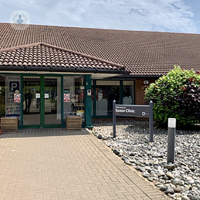Psycho-oncology
What is psycho-oncology?
Psycho-oncology uses psychotherapy, cognitive behavioural therapy (CBT) and counselling to address the psychological, social and behavioural aspects of living with cancer.
It looks at the patient and their families psychological response to having cancer during all stages of the disease. Talking therapy also addresses the behavioural and social factors that may influence psychological processing of the disease.

Why is psycho-oncology useful?
The treatment is offered to patients who have begun to experience psychological symptoms, such as anxiety and depression, secondary to their cancer diagnosis. The service is beneficial for patients who need additional support on their journey.
It can also help patients deal with unwanted side effects such as nausea or pain, adhere to treatment guidance, or help them overcome their fear of needles.
How can psycho-oncology improve quality of life?
Psycho-oncology aims to improve various aspects of life. They include:
Emotional problems
Co-morbidities like anxiety, depression and fear of progression can develop, and require psycho-oncology treatment.
Assistance with practical and social problems
Considerations such as returning to work, financial problems, child care and housing are issues that could be addressed.

Family issues and support
Family members that may rely on the patient, and support given to caregivers may require consideration.
Spiritual aspects
Personal growth, religious concerns and death/bereavement issues can arise.
General health
Improvements in lifestyle, nutrition, exercise and stress management are aspects of psycho-oncology treatment.
Optimising patient treatment
Giving patients agency over their treatment, such as adhering to what's been prescribed, treatment decisions, use of painkillers and alternative medicine, can assist.
Physical symptoms
Patients can assess how to improve physical symptoms such as pain, fatigue and insomnia.
Which physical symptoms of cancer can benefit from psycho-oncology?
Psycho-oncology is beneficial for patients living with physical symptoms of cancer, such as:
- Pain
- Fatigue
- Sexual and psychosexual problems
- Insomnia
- Cognitive disorders like chemo fog
Who practices psycho-oncology?
Psycho-oncology practitioners are part of a team that consists of a consultant psychiatrist, psychologists, counselling and therapy staff and specialist nurses.


